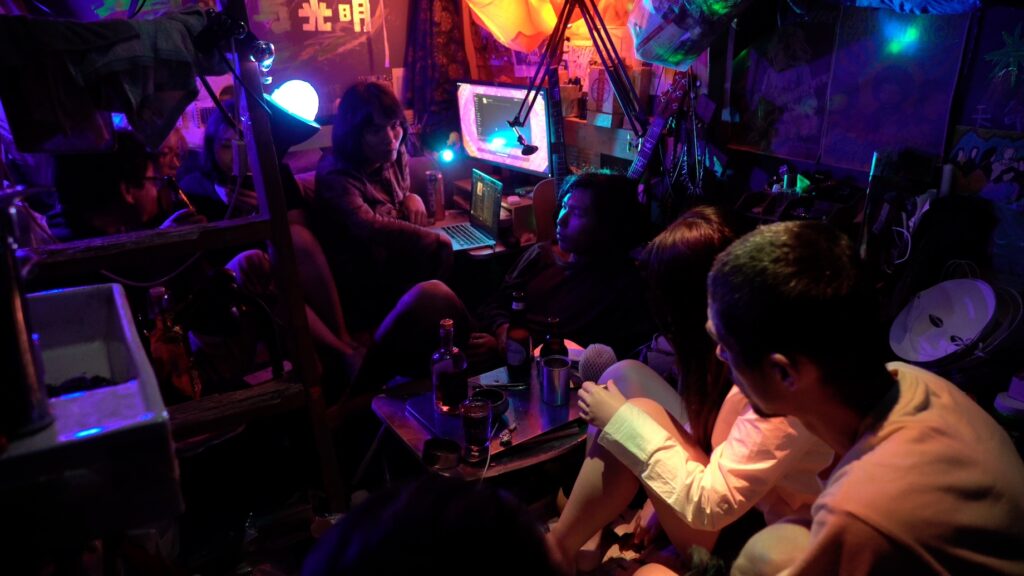A Documentary, ‘Republic’ Offers a Frustrating Look at a Tiny Slice of Modern China
Because making the transition to adulthood isn’t easy and can lead to confusion, particularly if one spends a majority of time loaded to the gills, our hero is all over the place.

Jin Jiang’s documentary “Republic” elicits frustration, largely because it sets up a veritable obstacle course of contradictory emotions. As a cinematic venture, the picture is deeply disturbing even as the pathologies it underlines are rote. Adolescents, we learn, are ever thus even as the age of adolescence seems to be extending beyond its chronological sell-by date. Add to this fraught dynamic one slacker’s notion of revolution and you have a picture that is, alternately, an expose, a parable, and a snuff film.
The latter designation is exaggerated, but here is a documentary in which we see an all-but perpetrated sexual assault, as well as the meting out of physical violence. As with any attempt at cinéma vérité, we should bear in mind that a degree of fiction enters into the shaping of a picture. Still, certain truths can be captured. As it is, we see the would-be rapist taken to task and the bodily harm elaborated upon and forgiven, sort of.
Nothing is certain in Mr. Jin’s “Republic,” which is both the title of his movie and a specific place — that is to say, an 18-square-foot apartment situated somewhere in Beijing. “Apartment” is putting it nicely: With its rickety loft bed, utilitarian sink, improvised power system, and less-than-secure entrance, “hovel” is more like it.
There is an air-conditioning unit and, from the looks of it, heating, but mostly this “republic” is rife with the detritus of youth: computers, phones, speakers, rock ’n’ roll posters, scads of garbage, bottles of booze and drugs, always with the drugs.

Welcome to the domain of Li Eryang, a 20-something philosophe who has, as was said in a different context, turned-on, tuned-in, and dropped out from polite society. He’s “all about peace, light, and love.” Mr. Li has turned his modest digs into a haven for the dispossessed, the marginal, the curious, and the bored — mostly the latter.
The free-floating members of Mr. Li’s society of “cosmic brothers and sisters” are seeking respite from — what exactly? Their parents, probably, but also school, work, and other responsibilities. Music is played and listened to, most of it Western: Bob Dylan is a touchstone, as are John Lennon, Pink Floyd, and, oddly, the Bee Gees. Conversations take place, albeit mostly under the influence of this-or-that substance. The subjects discussed include the costs of capitalism and the benefits of communism, and then vice versa.
We’ve all known someone like Mr. Li; I’m willing to bet a lot of us have been Mr. Li at one point or another. Making the transition to adulthood isn’t easy and can lead to confusion, particularly if one spends a majority of time loaded to the gills. As a result, our hero is all over the place. At one point, he extols the virtues of Xi Jinping; at another, he lauds Donald Trump. Mr. Li takes ruminative flights into the otherworldly that beggar even the slightest basis in logic. There are better examples for the good life than the Fabulous Furry Freak Brothers.
So, yeah, Mr. Li — been there, done that. But what about Mr. Jin’s picture? How he managed to squeeze himself and his camera into the “republic” is a good question. For the most part, he disappears into the surroundings like a fly on the wall. As such, the film ambles along more than most audiences will sit still for. Yet it does come with its own dramatic aperçus, among them a self-administered haircut and the coming due of a sizable credit card bill. Time to call mom and dad.
How much “Republic” has to say about contemporary China, I’ll leave to the experts. As for the tribulations and excesses of post-adolescence, Mr. Jin’s film iterates them to dismaying effect.

